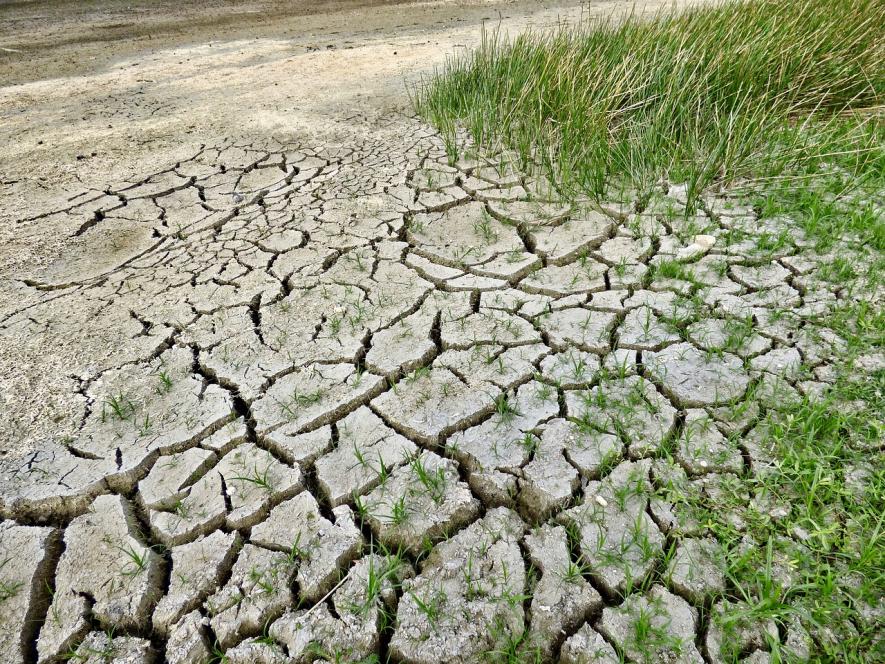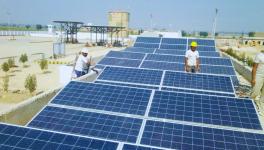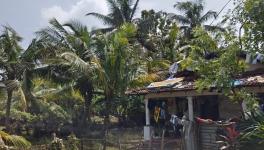Climate Change Impacts Arid Regions of Wealthier and Poorer Countries Differently: Study

Image Source: Needpix.com
Over a fourth of the earth’s ecosystem consists of arid regions (dry lands) that support 30% of the world’s population. Over the period of 21st century, the world’s arid regions are expected to increase. Some of these arid regions also belong to the savannah in Africa or deserts, for example in Australia, where vegetation and wildlife have for long adjusted to the scarce water conditions. But these ecosystems are also extremely vulnerable to the man-made climate change.
Now, a new research from the University of Copenhagen, Department of Geosciences and Natural Resource Management, has shown that this vulnerable vegetation in the arid regions are also differentially impacted by climate change. The conclusion of the research is also alarming as they say that economically challenged countries in the arid regions are having a negative correlation of the rainfall water and vegetation growth, whereas, the wealthier countries have a reverse trend. The research has been published in Nature.
One of the leading authors of the research, Professor Rasmus Fensholt from the Department of Geosciences and Natural Resource Management, explains their findings—“We observe a clear trend of arid areas developing in a negative direction in the most economically challenged countries. Here, it is apparent that the growth of vegetation has become increasingly decoupled from the water resources available and that there is simply less vegetation in relation to the amount of rainfall. The opposite is the case in the wealthiest countries.”
This gives a clear signal that economically-challenged countries in world’s arid regions are at the receiving end of the impact of climate change on the ecosystem of such places. This, in future will lead to more food crisis and may result in an increase in climate refugees.
The research analysed satellite imagery of vegetation and rainfall in the period 2000-2015. The researchrs compared the evolution of the vegetation in world’s arid regions. In their calculation, they focussed on estimating how some regions received more rains in the past while others received less. The researchers in their calculation tried to bring out a more accurate picture of the health of the ecosystem. They also estimated how human activities have impacted the eco systems—whether overexploitation of the resources to a point of no reversal has taken place or whether the resource exploitation is within a limit.
Christin Abel, the first author of the study and a post-doctoral fellow at the department, said, “Here, our results demonstrate that in arid regions, particularly those in Africa and Asia, less vegetation grows for the amount of rainwater that falls, while more vegetation grows in arid areas of South America and Australia.”
The research says that a worse situation is found in Asia and Africa while better situations prevail in South America and Australia.
As an explanation of the differential impact of climate change on different countries, the researchers have pointed out rapid population growth as a major factor. For example, in Africa, with population growth, the need for overexploitation of land arises. The land is already poorly suited for agricultural activities. This leads to a situation where yields are lower and livestock is put on less amount of grass, which is already in a fragile ecosystem.
On the other hand, vegetation in the arid regions of wealthier countries seems to be coping better with the change in climatic conditions. This could be a result of a better management of farming where more resources like irrigation and fertilisation are made possible.
Get the latest reports & analysis with people's perspective on Protests, movements & deep analytical videos, discussions of the current affairs in your Telegram app. Subscribe to NewsClick's Telegram channel & get Real-Time updates on stories, as they get published on our website.
























